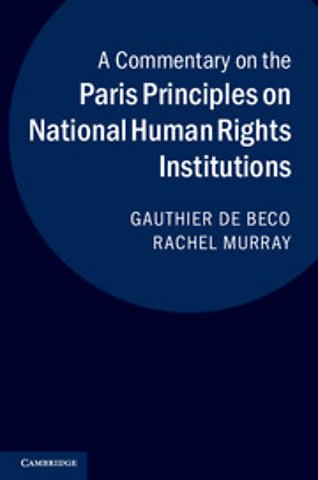A Commentary on the Paris Principles on National Human Rights Institutions
Samenvatting
The Principles relating to the Status of National Institutions (The Paris Principles) were adopted by National Human Rights Institutions (NHRIs) and endorsed by both the UN General Assembly and Human Rights Commission. Since their adoption, they have become the standards applicable to these institutions with a mandate to promote and protect human rights.
This book offers a complete study of the Paris Principles, which includes an appraisal of their establishment, evolution and potential for the future; a comprehensive commentary on each provision; and a practical guide to their interpretation, including the implications they have for the implementation of the competencies of NHRIs. This is the first book to thoroughly analyse the Paris Principles and will be essential reading for a global audience of both practitioners working for NHRIs and the UN as well as human rights scholars.
- Includes a detailed commentary on each provision of the Paris Principles
- Usefully differentiates between the essential requirements of and ideal approaches to the Paris Principles
- A critical analysis of the issues that are - and are not - clearly addressed by the Principles (such as effectiveness and accountability)
Specificaties
Inhoudsopgave
1. Introduction, history and context
2. Challenges
Part II: Commentary Principle by Principle:
3. Competence
4. Mandate
5. Pluralism and representativeness
6. Independence
7. Working methods and strategy
8. Quasi-judicial powers
9. Stakeholders
Part III: 20 Years Later: Future of Paris Principles:
10. An evaluation of the Paris Principles
Annex I: The Paris Principles
Annex II: ICC general observations.







